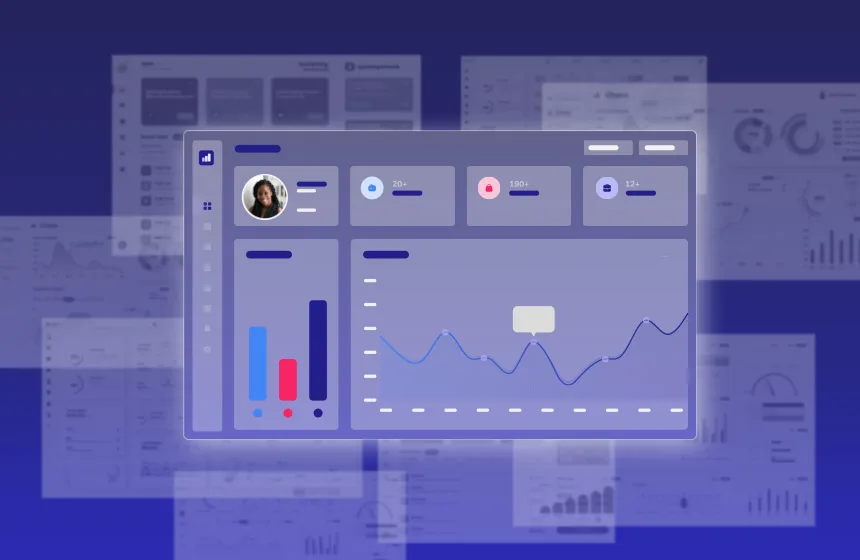Accelerate deals and increase win rates with the leading enterprise demo platform.
Why Product Demo Platforms are Key to Enterprises

February 18, 2025
Table of Contents
In today’s enterprise sales landscape, capturing a prospect’s attention and effectively communicating a product’s value is more challenging than ever. With complex solutions and multiple decision-makers involved, traditional demo methods—such as static slide decks or live walkthroughs—often fail to provide an engaging and scalable experience. Buyers now expect more control over their evaluation process, preferring interactive and personalized demonstrations that allow them to explore a product at their own pace.
This shift in buyer expectations has made product demo platforms a necessary tool for enterprises. These platforms offer scalable, self-guided, and data-driven demo experiences that enhance customer engagement and streamline the sales process. In this article, we’ll explore why product demo platforms have become key to enterprise success, the challenges they solve, and how businesses can leverage them to drive higher conversions and revenue growth.
Understanding Product Demo Platforms
A product demo platform is a software solution that enables businesses to create, customize, and distribute product demonstrations in an interactive and scalable way. Unlike traditional live demos or static presentations, these platforms provide prospects with a hands-on experience, allowing them to explore a product’s features and capabilities at their own pace.
Modern product demo platforms offer a range of functionalities designed to enhance the buyer experience and optimize the sales process. Some key features include:
- Self-guided interactive demos – Allow prospects to engage with the product without needing a live sales representative.
- Personalization options – Tailor demos to different industries, use cases, or buyer personas.
- Engagement analytics – Provide insights into how prospects interact with the demo, helping sales teams refine their approach.
- Seamless integrations – Connect with CRM and marketing automation tools for streamlined follow-ups and lead nurturing.
By leveraging a product demo platform, enterprises can create more engaging, data-driven, and consistent demo experiences that align with today’s buyer expectations while avoiding the challenges that come along with traditional demo methods.
The Challenges Enterprises Face Without a Product Demo Platform
Without a product demo platform, enterprises often struggle to deliver demos that are both engaging and scalable. Many organizations rely on traditional demo methods, which come with significant limitations that can slow down the sales process and reduce effectiveness. Some of the most common challenges include:
- Lengthy and inefficient sales cycles: Sales teams spend considerable time conducting repetitive live demos, which delays the buying process and limits scalability.
- Difficulty showcasing complex products: For software and technology companies, explaining intricate features through static slides or generic walkthroughs can be ineffective and overwhelming for prospects.
- Inconsistent demo experiences: Live demos depend on individual sales reps, leading to variations in quality and messaging, which can impact how prospects perceive the product.
- High dependence on sales representatives: Traditional demos require a significant amount of direct involvement from sales teams, reducing their availability for other high-value tasks.
- Limited scalability: As enterprises grow and reach more prospects, manually delivering demos to every lead becomes unsustainable.
These challenges highlight the need for a more efficient and engaging approach to product demonstrations. This is where product demo platforms come in.
How Product Demo Platforms Solve These Challenges
A product demo platform directly addresses the inefficiencies of traditional demo methods by offering a scalable, automated, and interactive approach. Instead of relying on live demonstrations for every prospect, these platforms empower buyers to engage with the product on their own terms while providing sales teams with valuable insights. Here’s how they solve the common challenges enterprises face:
Automation & Scalability
Product demo platforms eliminate the need for repetitive live presentations by offering on-demand, self-guided demos that can be accessed anytime. This allows sales teams to reach more prospects without increasing their workload.
Enhanced Engagement & Personalization
Unlike static slide decks or generic walkthroughs, interactive demos can be customized to match different industries, use cases, and buyer personas, making them more relevant and impactful.
Data-Driven Insights
Demo platforms provide real-time analytics on how prospects interact with the demo, helping sales teams identify key areas of interest and tailor their follow-ups accordingly.
Consistency & Reliability
A product demo platform allows every prospect to experience a high-quality, uniform demonstration, reducing variability caused by different sales reps.
Reduced Sales Dependency
By enabling self-service demos, these platforms free up sales teams to focus on high-value conversations rather than spending time on routine presentations.
By leveraging a robust product demo platform, enterprises can optimize their sales process, improve efficiency, and create a more engaging experience for potential buyers.
The Business Impact of Product Demo Platforms
Adopting a product demo platform doesn’t just streamline the demo process—it directly contributes to improved business outcomes. Enterprises that implement these platforms see tangible benefits across their sales and marketing efforts, ultimately driving revenue growth. Here’s how:
Higher Lead Conversion Rates
Interactive, self-guided demos allow prospects to experience the product’s value firsthand, making them more likely to convert. By providing an engaging and immersive experience, businesses can accelerate decision-making and reduce drop-off rates.
Faster Sales Cycles
Prospects no longer have to wait for a scheduled demo; they can explore the product immediately. This removes bottlenecks, shortens the sales cycle, and allows sales teams to focus on high-intent leads.
Reduced Costs & Resource Allocation
Automating product demos reduces the need for repetitive live presentations, freeing up sales representatives to focus on strategic discussions and deal closing. This efficiency leads to a more cost-effective sales process.
Improved Customer Satisfaction
Self-service demos allow buyers to explore the product at their own pace, leading to a better overall experience. Prospects feel more in control of their evaluation process, which can lead to stronger trust and engagement.
Better Sales & Marketing Alignment
With detailed engagement analytics, marketing teams can better understand which features resonate most with prospects, helping refine messaging and content strategies. Sales teams, in turn, get insights that enable more targeted follow-ups.
By integrating a product demo platform, enterprises can create a more efficient, data-driven, and engaging sales process that ultimately leads to higher conversions and stronger customer relationships.
Key Features to Look for in an Enterprise Product Demo Platform
Not all product demo platforms are created equal. To maximize the benefits, enterprises need to choose a solution that aligns with their sales and marketing goals. Here are the key features to consider when evaluating a platform:
- Interactive, Self-Guided Demos: The ability to create immersive, hands-on demos that allow prospects to explore a product without requiring a live salesperson. This enhances engagement and creates a frictionless experience.
- Personalization Capabilities: The best platforms enable customization based on the prospect’s industry, use case, or role, making the demo more relevant and impactful.
- CRM & Marketing Integrations: Seamless connectivity with tools like Salesforce, HubSpot, and Marketo allows for better tracking, follow-ups, and lead nurturing.
- Analytics & Engagement Insights: Robust reporting features help sales and marketing teams understand how prospects interact with the demo, which features resonate most, and where prospects may need additional support.
- Scalability & Security – Enterprises require a solution that can handle large-scale deployments while maintaining data security and compliance with industry standards.
- Flexibility in Demo Creation – A strong platform should allow teams to create both guided and unguided demo experiences, catering to different stages of the buyer’s journey.
Choosing a product demo platform with these capabilities allows enterprise companies to deliver high-impact demos while optimizing their sales and marketing processes.
Why Reprise is the Preferred Enterprise Product Demo Platform
In the competitive world of enterprise sales, delivering impactful, scalable, and engaging product demonstrations is more important than ever. Traditional methods like live demos or static presentations simply can’t meet the demands of today’s savvy buyers. That’s where product demo platforms like Reprise come in. With its seamless self-guided demos, powerful customization options, and insightful analytics, Reprise stands out as the preferred choice for enterprises across all industries that are looking to optimize their sales process.
Reprise offers a unique combination of automation and personalization, giving all prospects an interactive, tailored experience that speaks directly to their needs. Its robust integrations with leading CRM and marketing tools streamline follow-ups and nurture leads with precision, while its scalable, data-driven approach reduces reliance on sales teams and accelerates the sales cycle.
By enabling enterprises to deliver high-quality, consistent demos at scale, Reprise not only boosts engagement but also drives higher conversions and fosters stronger customer relationships, making it the ultimate solution for enterprises committed to staying ahead in the competitive landscape.
Want to learn more? Book a demo or check out our recent eBook on mastering enterprise demo software.






